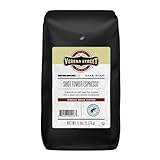In a world of increasingly discerning coffee drinkers and socially conscious consumers, the Rainforest Alliance Coffee certification emerges as a beacon of ethical farming. As we delve into the intersections of environmental sustainability and our morning cup of joe, it’s essential to understand the importance of this unique certification. From the rich soils of Colombia to the highlands of Ethiopia, a special group of farmers are passionately committed to sustainable practices and protecting the biodiversity of their lands. They cultivate what we know as Rainforest Alliance Coffee.
But, where to buy Rainforest Alliance Coffee, you may ask? This inquiry leads us down the path of understanding the significant role this certification plays in the intricate world of coffee production and retail. It illuminates the stories behind every cup, echoing the mantra of coffee that not only tastes good but also does good.
In this article, we will explore the heart of the Rainforest Alliance certification, examining its goals, its impacts on farming communities, and how it contributes to the broader narrative of environmentally-conscious consumerism. Join us on this enlightening journey that’s set to transform your coffee-drinking experience, as we unravel the layers of responsibility, empowerment, and change that brew within each certified cup.
Rainforest Alliance Coffee: Key Takeaway
- Sustainable Growth: Rainforest Alliance Certification promotes ecologically sustainable farming practices, benefiting both the environment and coffee farmers.
- Preserving Biodiversity: The certification encourages shade-grown coffee cultivation, fostering biodiversity by maintaining natural habitats and minimizing deforestation.
- Distinctive Taste: Rainforest Alliance coffee, grown in diverse ecosystems, offers a unique taste and flavor profile due to healthy soil conditions and traditional farming techniques.
- Spot the Frog: Consumers can support sustainable coffee production by looking for the Rainforest Alliance’s green frog seal on coffee product packaging.
- Spreading Awareness: Promoting sustainable coffee consumption to a wider audience is crucial, even though it presents challenges such as overcoming price misconceptions and changing consumer habits.
Best Rainforest Alliance Coffee – Guru’s Pick: Volcanica Coffee
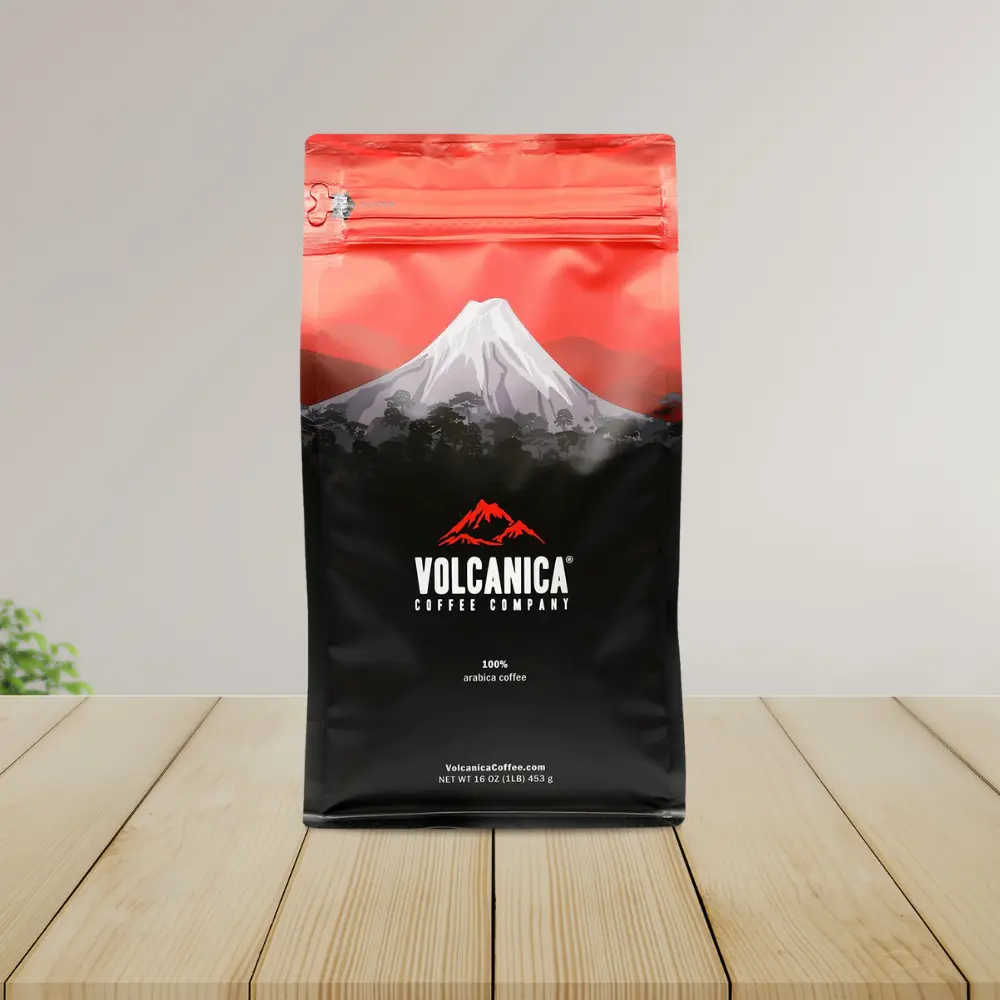
As enthusiasts in the world of coffee, we’ve tasted, analyzed, and experimented with countless brands and roasts. After careful deliberation and many enjoyable tasting sessions, The Coffee Guru is thrilled to present our top pick for Rainforest Alliance Certified coffee – Volcanica Coffee. This exceptional brand encompasses a vast range of flavors from around the globe, with each bean cultivated in alignment with the highest standards of sustainability.
Let’s delve into the unique qualities of a few select Volcanica offerings, specifically, Brazil Coffee, Costa Rica Coffee, and Guatemala Antigua Coffee.
Brazil Coffee
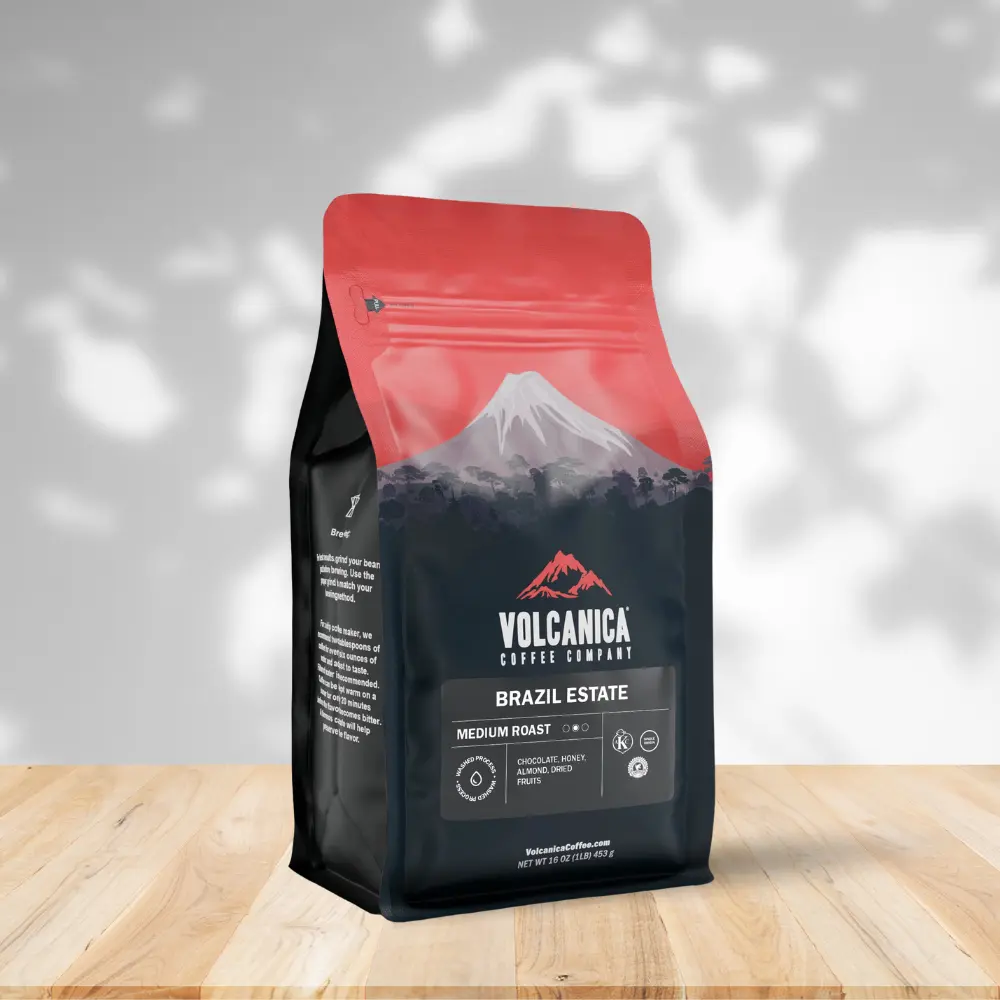
This remarkable estate coffee hails from the Minas Gerais region of Brazil. It captivates palates with its gentle sweetness, delightful notes of chocolate, and balanced acidity that culminates in a clean flavor profile. Its certifications include Kosher and Rainforest Alliance, and it employs a washed process with a medium roast. This single-origin coffee is particularly noteworthy as a low-acid variant, registering a pH of 5.1.
Costa Rica Coffee
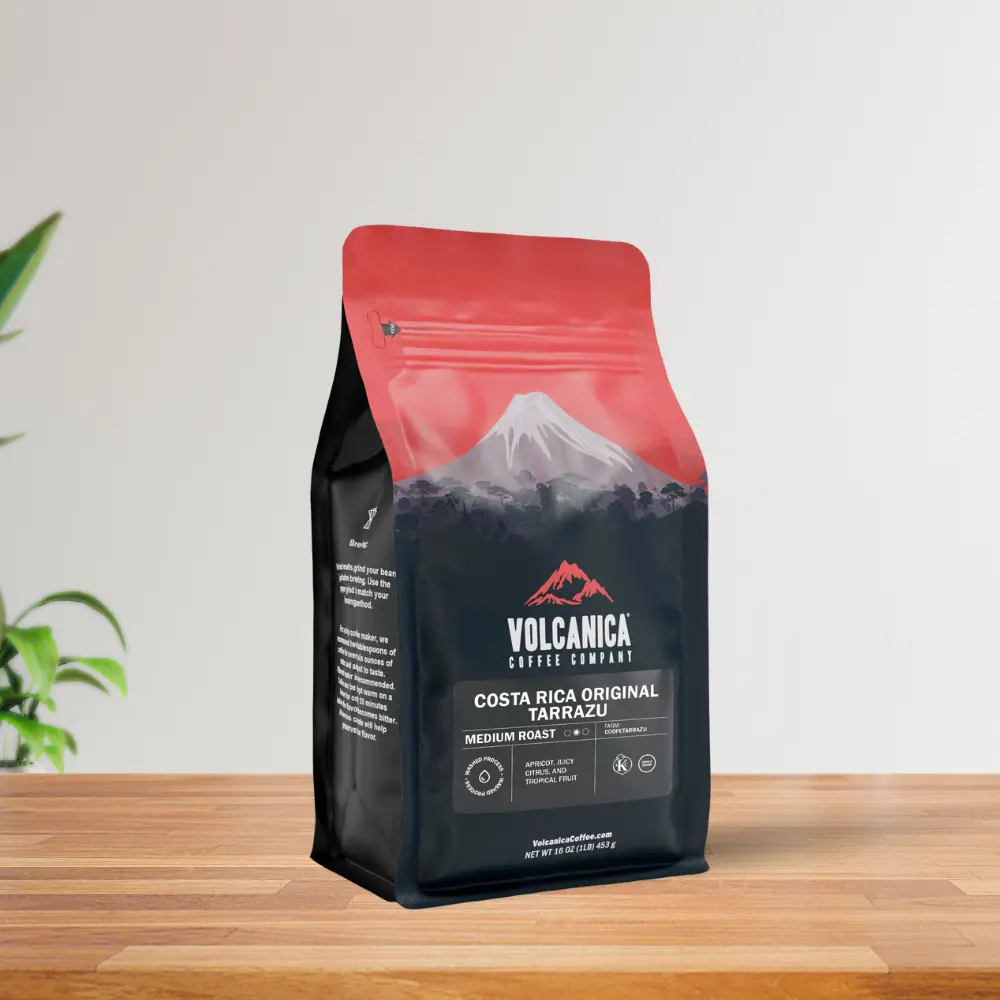
Grown on volcanic soil at high altitudes, this coffee from the Tarrazu Estate in Costa Rica undergoes a slow maturation process, leading to a robust, rich flavor. The medium roast preserves the coffee’s natural depth, elegance, and full-bodied richness. Certified as Kosher and by the Rainforest Alliance, the coffee reveals enticing notes of apricot, juicy citrus, and tropical fruits. The beans are patio and mechanically dried, sourced from various smallholder Tarrazu farms, and register a pH of 5.1.
Guatemala Antigua Coffee
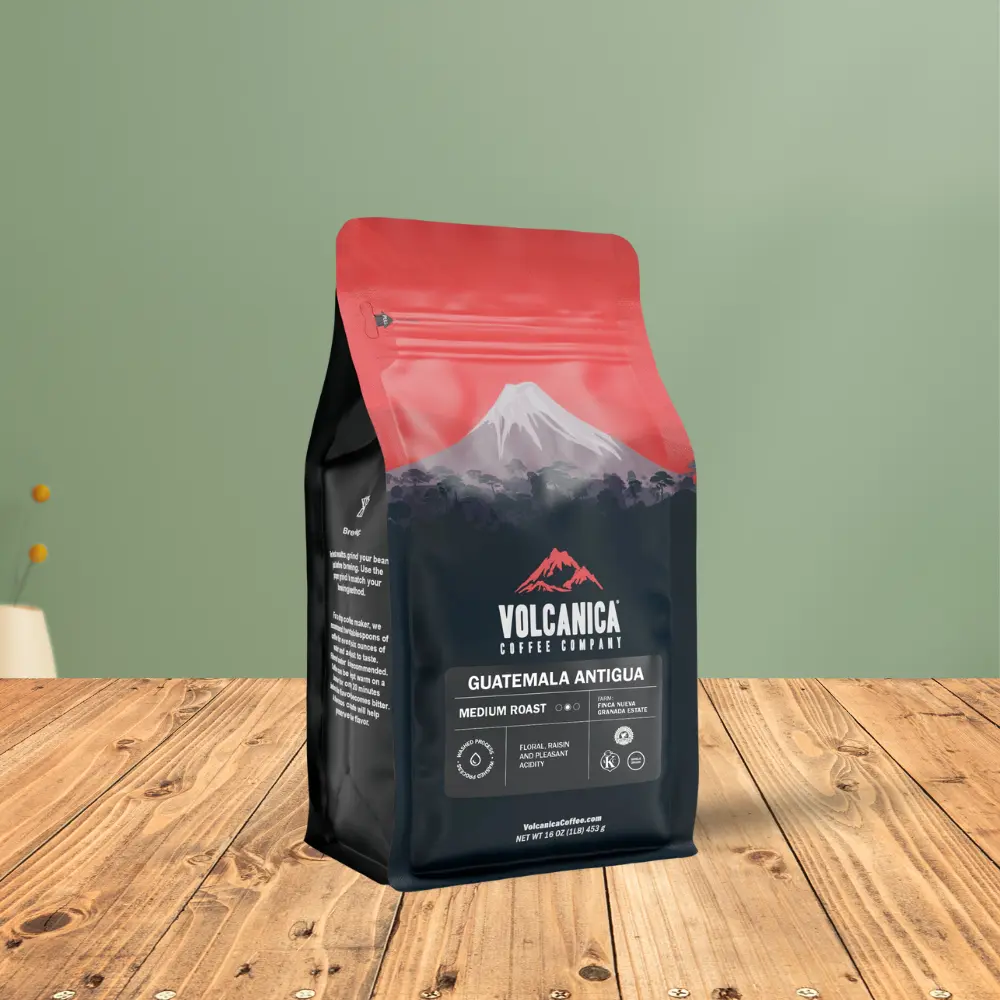
This offering from the Medina Estate in Guatemala possesses a luxurious, full-bodied character with an alluring aroma. The flavor profile is a melange of honey, apple, tea, and floral brown sugar notes. It’s 100% sun-dried, subjected to a medium roast, and processed using the washed method. As with our other highlighted options, it carries the Kosher and Rainforest Alliance certifications. Notably, it’s classified as a low-acid coffee, featuring a pH of 5.3.
In the competitive world of Rainforest Alliance-certified coffee, Volcanica Coffee distinguishes itself with its uncompromising commitment to quality, sustainability, and a rich diversity of flavors. For anyone looking to make a conscious choice in their coffee consumption while savoring extraordinary taste, Volcanica Rainforest Alliance Coffee comes highly recommended by The Coffee Guru.
Understanding Rainforest Alliance Certification
In a world increasingly aware of the importance of environmental sustainability, Rainforest Alliance Certification stands as a beacon of sustainable agriculture practices. This certification has been developed by the Rainforest Alliance, an international non-governmental organization with a mission to protect nature and improve the well-being of farming communities. Here, we delve into what the Rainforest Alliance Certification is, the criteria involved, and the certification’s impact, particularly on coffee farms. This deep dive aims to enhance understanding of how this global initiative shapes farming standards, influences market trends, and fosters a more sustainable world, with a specific emphasis on rainforest alliance certified coffee.
What is Rainforest Alliance Certification?
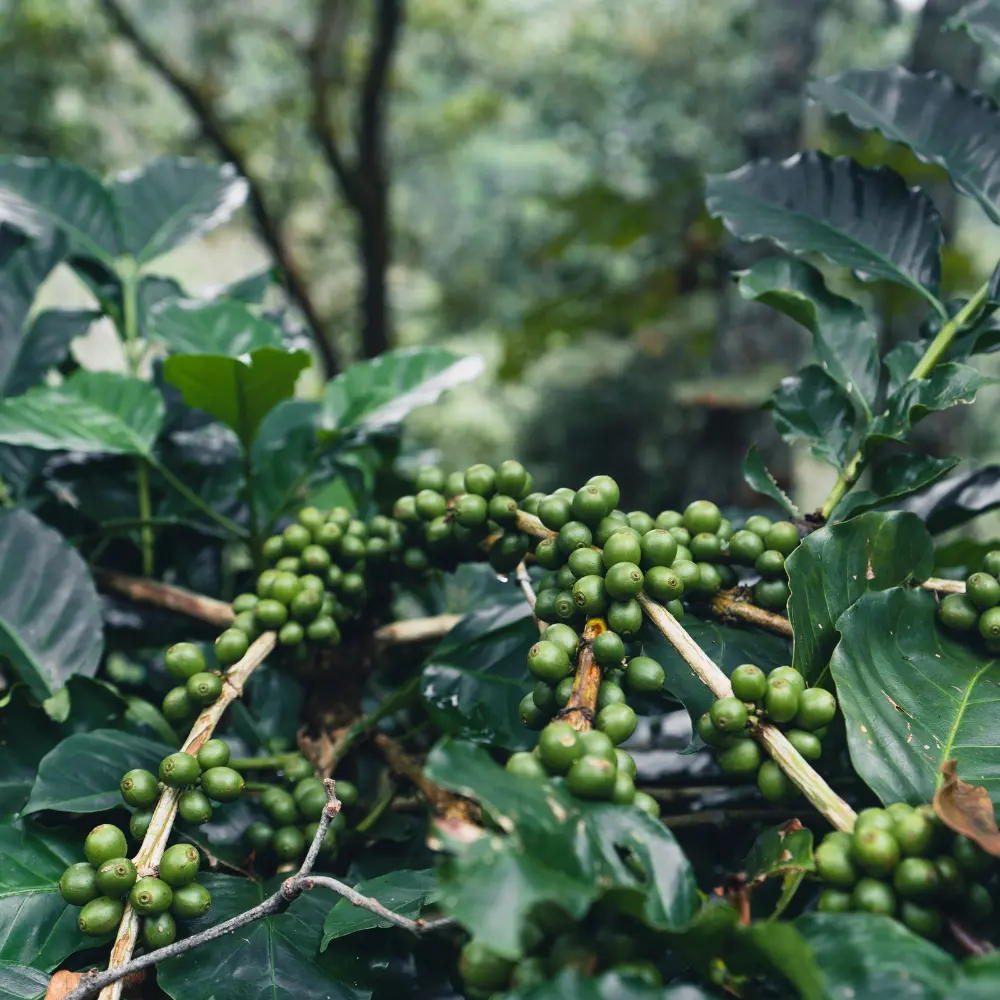
The Rainforest Alliance Certification is an international initiative pioneered by the Rainforest Alliance, an NGO that spans more than 70 countries. This certification is one of the organization’s significant drives, focusing on promoting and implementing sustainable agricultural practices across the globe. The goal is to establish and uphold a balance between businesses, farming communities, consumers, and the environment in order to create sustainable goods that positively impact both local communities and the planet. This ethos carries over to their newer 2020 standard, which replaced previous certifications, including the Sustainable Agriculture Standard and UTZ Certification Standard, with a focus on fostering improvement and adherence to sustainability requirements.
In the realm of sustainable agriculture certification, the Rainforest Alliance has a broad reach, training and certifying farms of all sizes across diverse crops, one of them being rainforest alliance certified coffee. In doing so, they encourage businesses and consumers to support sustainability, signified by the Rainforest Alliance Certified seal.
Understanding the Symbolism of the Frog
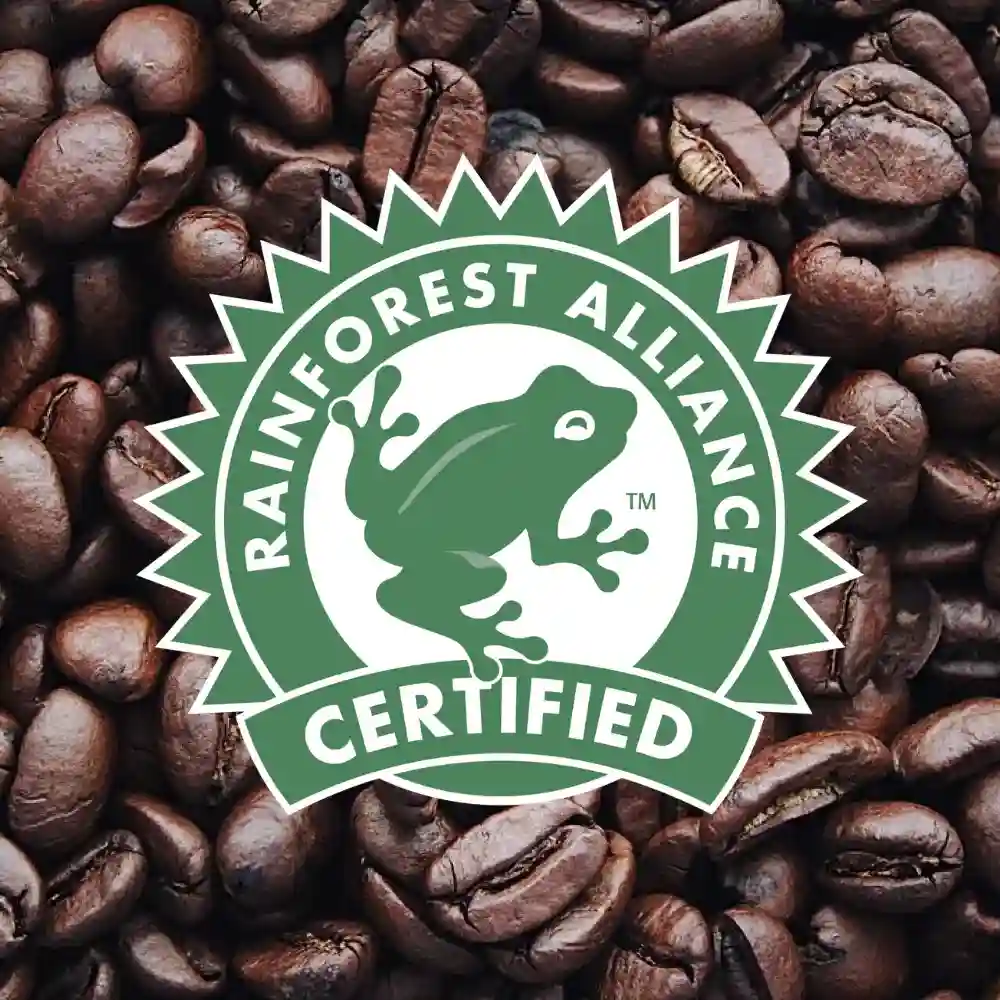
The frog has long served as a crucial bioindicator species, acting as a barometer of an environment’s overall health. The presence of a robust frog population signifies a vibrant, healthy ecosystem, while a decline can indicate ecological issues. Over 30 years ago, the Rainforest Alliance chose the emblem of the red-eyed tree frog. This particular species is abundant in the neotropics, which was the primary focus of the organization’s initial efforts to protect tropical rainforests. Today, the frog has grown to be a universally recognized symbol representing sustainability. (1)
This amphibian emblem carries significant weight, specifically denoting sustainability standards in a variety of sectors:
Agricultural Products
When you encounter the Rainforest Alliance seal adorned with the frog on any product, it signifies that the specific ingredient in the product was grown on farms adhering to the Sustainable Agriculture Standard. For certain items like herbs and spices, the standards of the Union for Ethical Biotrade (UEBT) are also incorporated, supplemented by additional requirements from our Sustainable Agriculture Standard.
Forestry Products
For forestry-derived products, such as paper and cardboard packaging, the presence of the frog seal indicates that the material originated from forests certified under the Forest Stewardship Council® (FSC) standard. The Rainforest Alliance was instrumental in the foundation of this organization. Moreover, the company using the seal is part of our Forest Allies Initiative.
The frog seal not only stands for high sustainability standards but also indicates the percentage of certified ingredients required in products bearing this mark. Furthermore, it brings attention to the concept of “mass balance,” a principle that supports companies, farmers, and consumers in their pursuit of sustainability. To understand the complexities and benefits of these elements, it is recommended to explore the specific details of our seal-bearing products further.
Thus, the frog, more than a mere symbol, represents the Rainforest Alliance’s commitment to preserving our natural world and promoting sustainable practices across various industries.
The Criteria for Earning Rainforest Alliance Certification
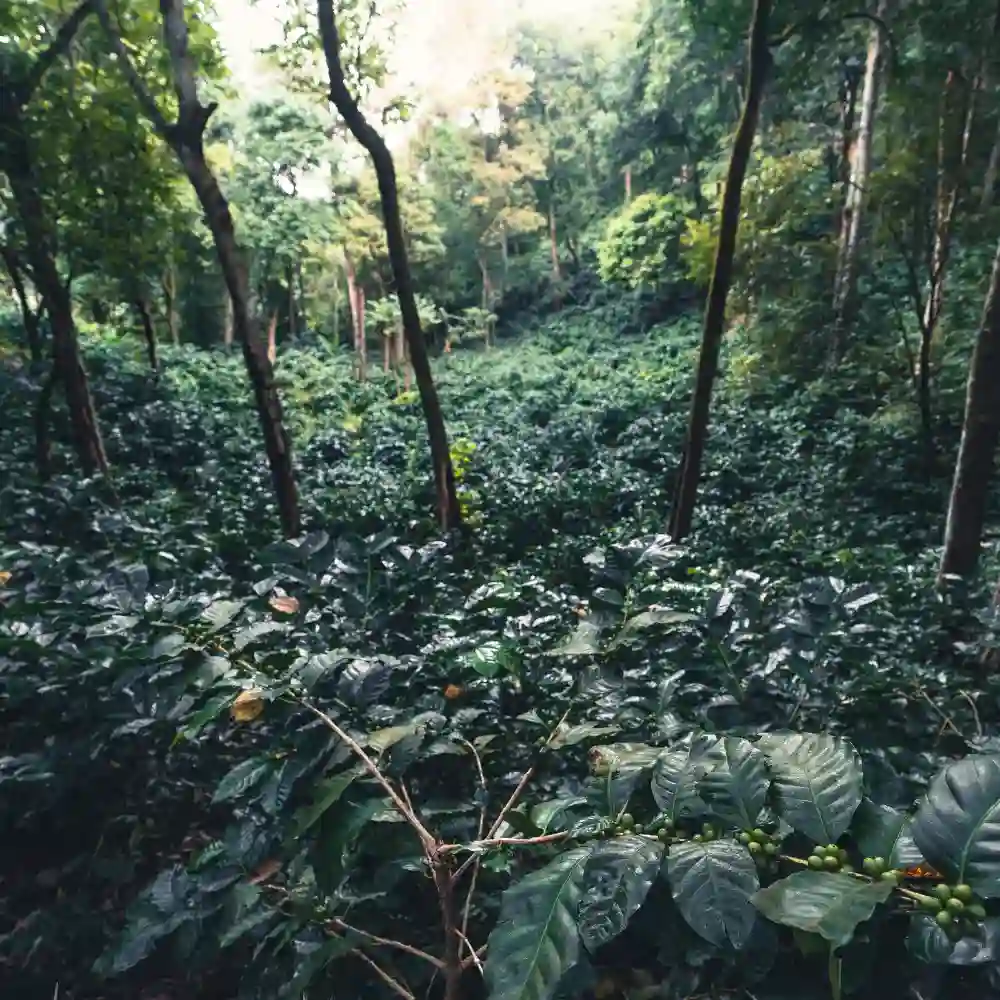
Earning a Rainforest Alliance certification is a rigorous process that entails meeting specific environmental, social, and economic criteria, which have been refined and updated in the certification standard introduced in 2020. These guidelines range from implementing climate-smart agriculture and promoting shared responsibility to preserving biodiversity, supporting human rights, and striving for gender equality. Each farm seeking certification is subject to regular compliance auditing to ensure the set standards are upheld.
While the 2017 Sustainable Agriculture Standard adopted a gradual improvement model, the new standard lays down core requirements evaluated through a pass/fail model. These form the backbone of sustainable agriculture practices. Additionally, improvement requirements are set to measure and stimulate progress toward sustainability, some of which are compulsory, while others can be chosen by the farmers themselves. This level of adaptability allows farms to set annual targets tailored to their specific needs, such as addressing gender gaps and other relevant issues.
Impact of Rainforest Alliance Certification on Coffee Farms
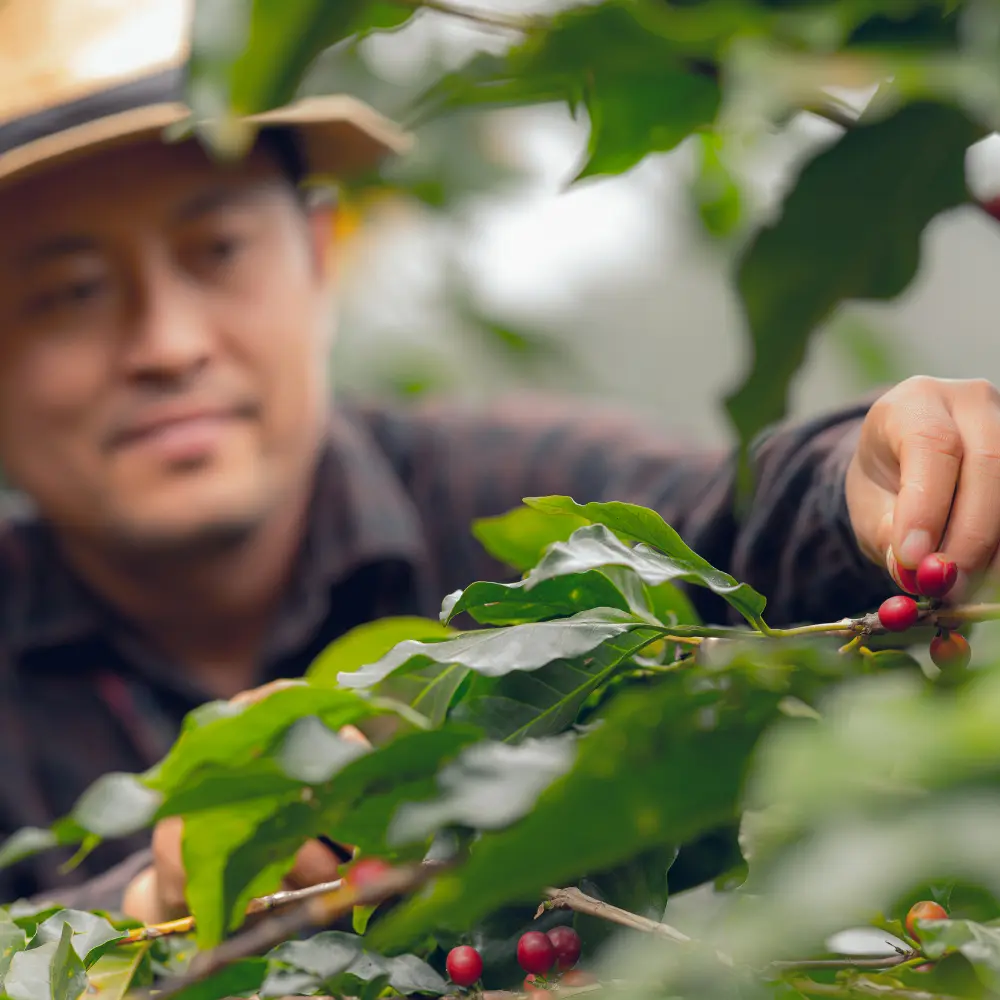
The Rainforest Alliance certification has had a profound impact on coffee farming worldwide. The organization partners with over 400,000 certified coffee farmers, a majority of whom are smallholders, aiding them in overcoming challenges such as fluctuating prices, increasing temperatures, and plant diseases. Through the certification program, coffee farmers receive training in climate-smart cultivation practices, increasing yields and income while also promoting sustainable agriculture.
The certification program strives to make the coffee sector more sustainable in several ways:
Human Rights
By adopting a proactive, risk-based approach, the certification program promotes human rights, addressing critical issues such as child labor, forced labor, discrimination, and workplace harassment. It facilitates continuous improvement in farms and businesses by providing tools to identify and address gender equality gaps in their operations. (2)
Climate
With coffee cultivation being vulnerable to climate change, the certification program encourages climate-smart growing practices. Measures include planting native shade trees to protect crops from extreme weather and implementing cover crops between coffee rows to improve soil absorption and humidity retention.
Livelihoods
The certification program aims to help coffee farmers improve productivity and profitability through sustainable practices and better farm management. Additionally, companies are required to make Sustainability Investments to support the implementation of sustainable practices on certified farms.
Forests and Biodiversity
The Rainforest Alliance certification program not only prohibits deforestation but also the destruction of all ecosystems, encouraging farmers to increase native tree cover. An exemplary model is the Aquiares Estate Coffee in Costa Rica, which, through its transformation, has enhanced biodiversity and soil health by shifting from a full-sun monoculture approach to cultivating coffee under the shade of native trees.
In summary, Rainforest Alliance certification has created a transformative impact on coffee farms worldwide, encouraging them to adopt sustainable farming practices that have a positive impact on the environment, the coffee sector, and the wider community.
Environmental Benefits of Rainforest Alliance Coffee
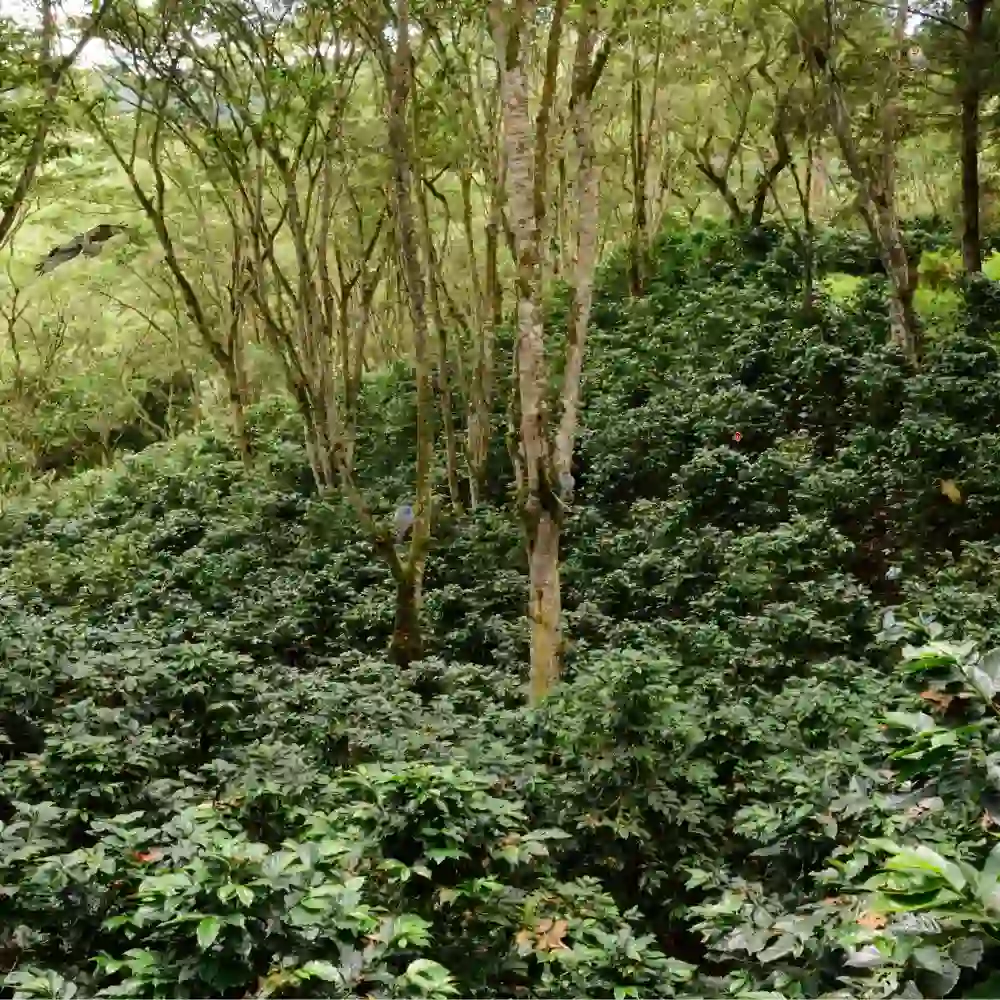
Rainforest Alliance Certified coffee serves as a prime example of how sustainable agricultural practices can have a far-reaching impact on the environment. This certification encapsulates an array of environmental benefits, including promoting biodiversity, reducing carbon footprints, and safeguarding precious water resources. Through implementing stringent standards for environmental conservation and responsible farming, Rainforest Alliance certified coffee is an embodiment of eco-conscious production and a beacon of hope for our planet’s future.
Biodiversity Conservation in Coffee Plantations
Biodiversity, the variety of life within an ecosystem, is a critical component of a healthy environment. A diverse ecosystem is more resilient, better able to adapt to changes, and is a significant source of ecological services such as pollination and pest control. (3) When coffee plantations adhere to the Rainforest Alliance’s standards, they commit to fostering such biodiversity.
Rainforest Alliance certified coffee farms are required to maintain or enhance the natural biodiversity of their farms. This is achieved by several means:
- Maintaining native vegetation: Farmers are encouraged to retain existing native trees and plants, which provide habitats for a variety of organisms.
- Promoting shade-grown coffee: Unlike conventional sun-grown coffee, shade-grown coffee encourages a diverse understory of plants and supports a wider range of animal and insect species.
- Avoiding monoculture: Diversifying crops not only reduces pest risks but also supports a more complex ecosystem.
Through these methods, certified coffee plantations contribute to the conservation and enhancement of local and regional biodiversity.
Carbon Footprint Reduction through Sustainable Practices
Climate change, largely driven by greenhouse gas emissions, poses a significant threat to agricultural productivity, including coffee production. However, Rainforest Alliance certified coffee production seeks to be part of the solution rather than contributing to the problem.
Certified farms are required to employ sustainable practices that help to minimize their carbon footprint:
- Sustainable use of resources: This includes optimizing the use of fertilizers and pesticides, reducing both the emissions associated with their manufacture and potential harm to the environment.
- Agroforestry systems: By incorporating trees into coffee plantations, these farms create a carbon sink, sequestering carbon dioxide from the atmosphere and mitigating the impacts of climate change.
- Energy efficiency: Certified farms also aim to improve energy efficiency, such as using biomass for heating, thereby reducing the use of fossil fuels.
Thus, rainforest alliance certified coffee provides a way for consumers to enjoy their daily cup while also contributing to the global fight against climate change.
Water Resource Management and Protection
Water is a critical resource in coffee production, but if not managed properly, it can lead to pollution and overuse of local water resources. The Rainforest Alliance recognizes the importance of water and has integrated robust water management practices into its certification standards.
Among the key water-related practices in Rainforest Alliance certified coffee farming are:
- Conservation: Farms are required to implement strategies to conserve water, such as rainwater harvesting and water-efficient irrigation.
- Pollution prevention: Strict guidelines govern the treatment and disposal of wastewater, preventing contamination of local water bodies.
- Protection of water bodies: Certified farms must establish buffer zones around water bodies, helping to protect them from pesticide runoff and soil erosion.
These practices ensure that the production of rainforest alliance certified coffee does not come at the expense of local water resources, contributing to the wider goals of sustainable water management.
Empowering Coffee Farming Communities
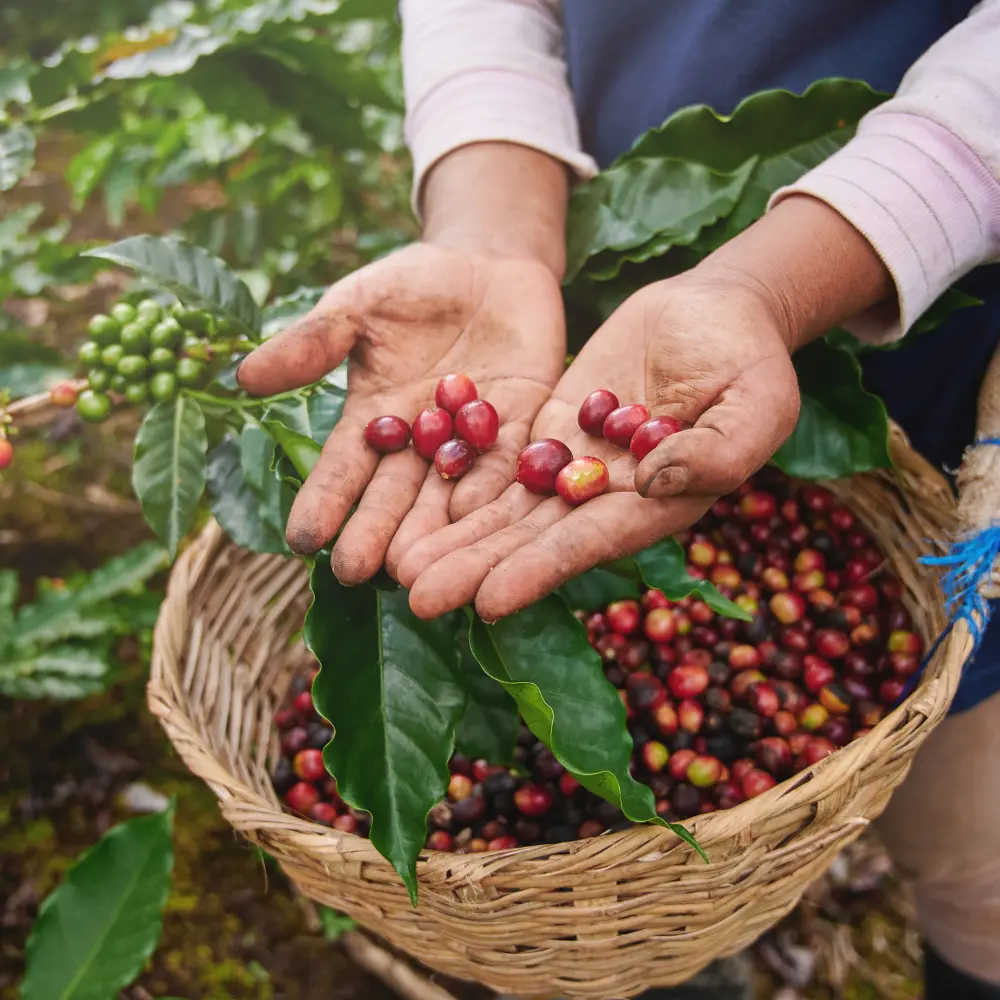
The Rainforest Alliance is fully committed to empowering coffee farming communities by ensuring fair wages, enabling community development, advocating for education, and emphasizing social empowerment and gender equality. All these aspects work towards fulfilling the UN’s 2030 Agenda for Sustainable Development Goals (SDGs) even in the face of adversities like the COVID-19 pandemic.
Fair Wages and Better Working Conditions
Creating a more equitable future for coffee farming communities begins with ensuring fair wages and improved working conditions. The Rainforest Alliance certification mandates:
- Fair compensation: Farmers receive fair prices for their produce, contributing to better living conditions.
- Improved working conditions: Farms provide safe and healthy environments for their workers, respecting labor rights and promoting well-being.
- Equal opportunities: Discrimination is staunchly rejected, promoting a balanced division of labor and fair treatment of all workers.
Community Development and Education
The Rainforest Alliance puts great emphasis on community development and education, with the understanding that knowledge is a powerful tool in driving sustainable change. Key initiatives include:
- Sustainable farming education: Farmers receive training on sustainable farming techniques, enabling them to enhance crop yields and maintain healthy ecosystems.
- Financial management training: Farmers learn how to handle their finances effectively, contributing to the economic growth of their families and communities.
- Community investment: Part of the premium paid for Rainforest Alliance certified coffee is redirected into community projects, such as building schools or improving local infrastructure.
Social Empowerment and Gender Equality
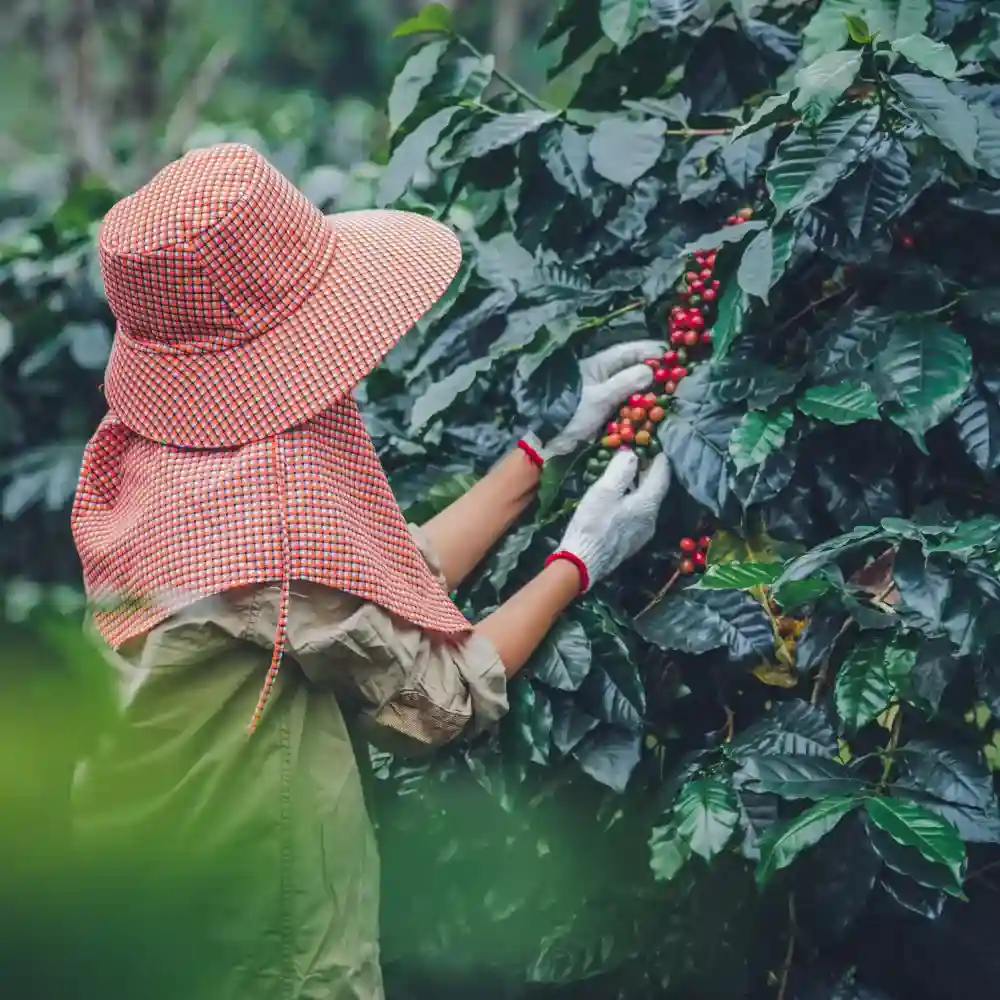
The Rainforest Alliance understands that achieving gender equality is essential to sustainable development. To this end, the organization goes beyond simply advocating for women’s rights; it seeks to dismantle oppressive systems and promote equality for all genders, including non-binary farmers and agricultural workers. (4) Efforts in this direction include:
- Promoting women’s roles in agriculture: Women are encouraged to play an active role in agriculture, which can increase farm yields significantly, reducing global malnourishment.
- Enhancing access to resources and opportunities: Women are provided equal access to resources, training, representation, and opportunities, helping to break down traditional gender roles.
- Improving incomes: Projects like Village Savings and Loan Associations (VSLAs) in Côte d’Ivoire help women increase their earnings, promoting human rights and equality.
- Facilitating entrepreneurship and career development: In regions like Mesoamerica, the Rainforest Alliance works with local organizations to challenge norms and biases and empower women economically.
- Shifting mindsets through responsible business practices: The Rainforest Alliance collaborates with major companies like Unilever and Cargill to create awareness about women’s rights and the importance of gender equality.
The Rainforest Alliance continues to work with men, women, and children to change attitudes and behaviors that reinforce inequality, aiming to foster an environment where everyone, irrespective of their gender, can flourish.
The Flavorful World of Rainforest Alliance Coffee
An exploration into the universe of Rainforest Alliance coffee uncovers a rich blend of distinctive flavors and sustainable practices. This journey, taking us through the ‘coffee belt’, encompasses a plethora of unique coffee growing regions, sustainable processing, and roasting methods, and enticing tasting notes and aromas, presenting an unforgettable coffee experience.
Unique Coffee Growing Regions and Varieties
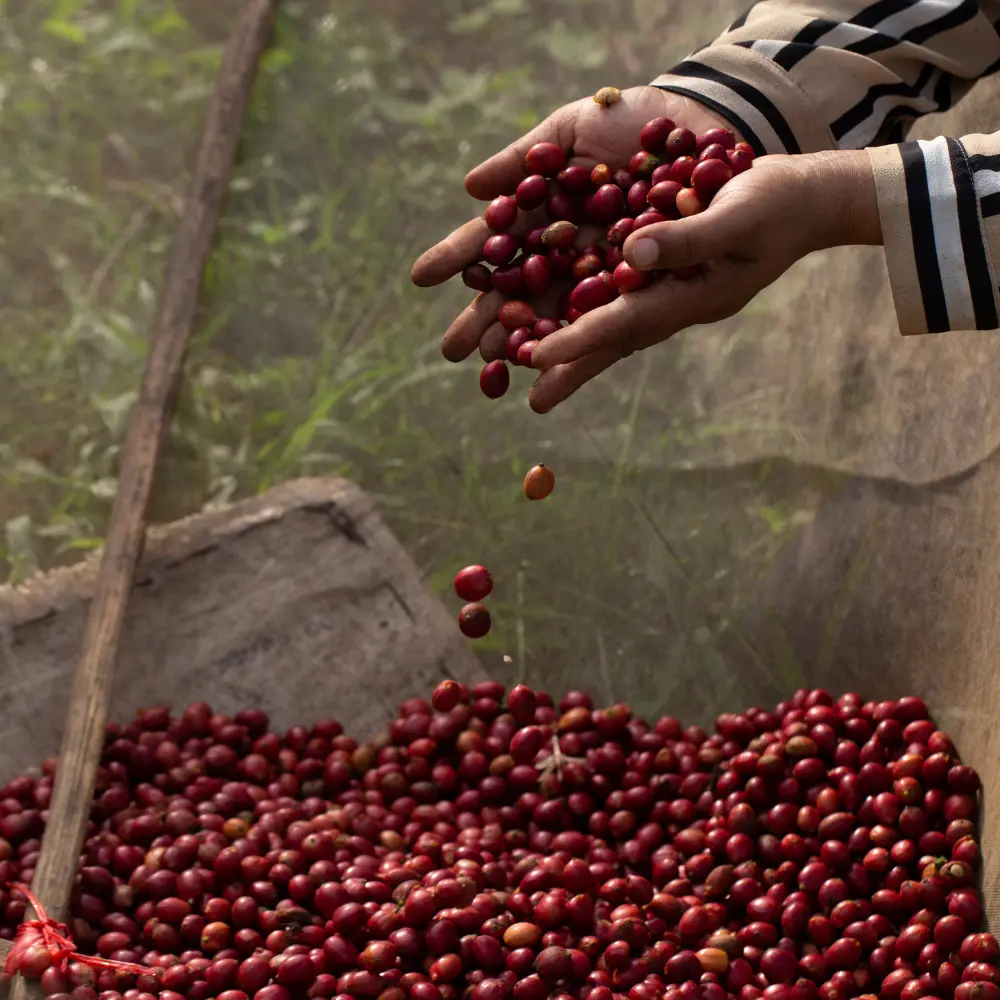
The ‘coffee belt’ encompasses numerous regions across Latin America, Africa, and Asia, each with unique soil compositions, climate conditions, and coffee varieties that contribute to the taste and quality of the final product. Harvesting takes place during the dry season, as the coffee cherries reach their ripest stage. Depending on the region and resources available, coffee cherries can be harvested in three ways: selective picking of the ripe cherries, mass picking followed by sorting, or using machines to comb the plants and harvest the cherries.
Sustainable Coffee Processing and Roasting Techniques
The journey from the mountainside to the mug involves a meticulous and sustainable processing procedure:
- Sorting: Post-harvest, the coffee cherries undergo a sorting process that separates the ripe cherries from the rest, using the simple principle of density where ripe cherries sink and the rest float when placed in water.
- Pulping: The sorted cherries then go through a pulping machine that separates the pulp and skin from the seed that eventually transforms into the coffee bean.
- Fermentation: To eliminate any remaining pulp, the beans are placed in water tanks for fermentation, which lasts between 12 to 48 hours.
- Drying: Post-fermentation, the beans are dried in the sun and regularly turned to ensure even drying and to prevent the growth of mildew.
- Roasting: The dried beans are then ready for roasting. The roast level, determined by temperature and duration, heavily influences the flavor and strength of the brewed coffee. Light roasts tend to highlight the coffee’s inherent characteristics and acidity, while darker roasts might emphasize the body and the roast character itself.
As previously discussed, the Rainforest Alliance is a proponent of traditional, sustainable coffee processing practices like ‘shade-grown’ coffee, as opposed to the ecologically detrimental ‘full sun’ practices, which lead to deforestation and increased use of pesticides and fertilizers.
Tasting Notes and Aromas of Rainforest Alliance Coffee

Rainforest Alliance coffee is characterized by a range of tasting notes and aromas that vary with the region, coffee variety, and processing techniques. However, what remains consistent is the commitment to sustainable practices that not only enhance the coffee’s flavor but also positively impact the environment. For instance, ‘shade-grown’ coffee plays a crucial role in providing habitats for migratory songbirds, integrating the coffee production process into the larger ecosystem.
As a trusted independent entity, the Rainforest Alliance certification stands as a testament to sustainable coffee production. This certification assures consumers that the coffee they are enjoying meets stringent standards balancing ecological, economic, and social considerations. From protecting ecosystems and conserving natural resources to promoting fair working conditions and fostering positive community relations, Rainforest Alliance certified coffee signifies a cup that’s not just delicious, but also ethically produced and environmentally friendly.
Impactful Coffee Consumption
As consumers, our daily choices, especially those related to coffee consumption, have significant impacts on both the environment and the livelihoods of those in coffee-producing regions. The choices we make can promote sustainable practices and support ethical initiatives like the Rainforest Alliance.
How Consumers Can Support Rainforest Alliance Coffee
Consumers play a crucial role in supporting the Rainforest Alliance’s mission for sustainable coffee production. Here’s how:
- Choose Certified Products: Look for the Rainforest Alliance Certified seal when purchasing coffee. This seal assures that the product has been produced following strict environmental, social, and economic standards.
- Encourage Local Stores: Advocate for sustainable products in your local grocery stores, cafes, and restaurants. Request them to stock Rainforest Alliance Certified coffee.
- Spread the Word: Talk about sustainable coffee and the Rainforest Alliance to your friends, family, and social networks. Sharing knowledge and encouraging others to make sustainable choices can significantly impact the demand for responsibly produced coffee.
Ethical Coffee Choices and Responsible Consumption
Ethical coffee consumption means making choices that support fair trade, sustainable farming practices, and the well-being of coffee-growing communities. Responsible consumption entails:
- Mindful Buying: Understand the origins of your coffee and the processes involved in its production. Make an effort to support brands that respect both people and the environment.
- Reduce Waste: Opt for reusable cups, filters, and other coffee accessories. Mindfully disposing of coffee grounds and packaging can also minimize the environmental impact.
- Moderate Consumption: While coffee is a much-loved beverage, it’s essential to consume it in moderation. Over-consumption can lead to increased demand, pressurizing producers to favor quantity over quality and sustainability.
Spreading Awareness for Sustainable Coffee Practices
Promoting sustainable coffee practices requires spreading awareness about the benefits of these practices, not only for the environment but also for the quality of the coffee and the livelihoods of the farmers.
- Educate Yourself and Others: Stay informed about issues in the coffee industry and share this knowledge. There’s a wealth of information available online, in documentaries, books, and through organizations like the Rainforest Alliance.
- Host Tastings: Encourage your friends and family to taste and compare Rainforest Alliance certified coffee with non-certified alternatives. This hands-on experience can highlight the quality difference and promote the benefits of sustainable farming.
- Social Media Advocacy: Use social media platforms to spread the word about sustainable coffee practices. Share posts, write blogs, or make videos to educate and inspire others to make ethical coffee choices.
Remember, every cup of coffee we consume can either contribute to the problem or be part of the solution. As consumers, let’s opt for the latter, supporting organizations like the Rainforest Alliance in their quest for a sustainable and ethical coffee industry.
Conclusion
Throughout this exploration of Rainforest Alliance Coffee Certification, we’ve seen how it contributes to sustainable and ethical farming. The journey has highlighted the unique growing regions, the precise processing and roasting methods, and the distinct flavors of certified coffee. Equally crucial is the role of consumers, who by making informed purchases, can contribute to the wellbeing of our planet and farming communities.
Every coffee lover should be mindful that their daily cup of joe extends a lifeline to remote corners of the world. Knowing where to buy Rainforest Alliance coffee, such as from our top recommendation, Volcanica Coffee enables you to enjoy the excellent taste and champion ethical farming.
In essence, Rainforest Alliance Coffee is more than just a beverage; it’s a statement of conscious consumption and sustainability. Let’s continue to enjoy coffee responsibly, appreciating the harmony between nature, farmers, and consumers.
FAQ
How does Rainforest Alliance coffee contribute to biodiversity conservation?
The certification encourages shade-grown coffee, which preserves natural habitats and promotes biodiversity by reducing deforestation and pesticide use.
What makes Rainforest Alliance coffee unique in taste and flavor?
Coffee beans grown in diverse, natural ecosystems often have distinctive flavors due to the rich, healthy soil and traditional farming methods.
How can consumers identify Rainforest Alliance-certified coffee products?
Consumers can spot certified products by looking for the green frog seal, a symbol of the Rainforest Alliance, on the packaging.
What are the challenges in promoting sustainable coffee practices to a broader audience?
The main challenges include spreading awareness about the importance of sustainability, overcoming misconceptions about price, and encouraging change in established consumer habits.




